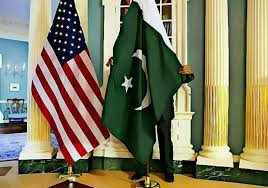EU leaders may miss a rendezvous with history

The emerging strategic agenda for the next EU mandate reveals an ecological step backwards Europe cannot afford to take.
Next Wednesday and Thursday, European Union heads of state and government will meet in Brussels for an extraordinary European Council meeting. They are summoned to discuss the latest five-year iteration of the ‘strategic agenda’, which will guide the EU legislative cycle after the European Parliament elections in early June. They will aim to agree a skeleton for the agenda and flesh it out over the coming weeks before formal adoption in late June. It will then steer the incoming European Commission president—for which Spitzenkandidaten have been selected by the main party families contesting the elections—and the next EU term.
A private document summing up the discussions between the council president, Charles Michel, and heads of state and government frames the priorities for action under three headings:
None of these focuses on the triple, climate-biodiversity-pollution crisis eroding European citizens’ wellbeing and the economy. There is no recognition of the existential threat to humanity represented by the climate crisis—an emergency hitting continent after continent—nor of the biodiversity loss and potential ecosystem tipping-points which can undermine our life-support systems, nor of how pollution and toxic chemicals are deleteriously affecting the health of millions. And of course there is also no understanding of the interconnections—too often mutually compounding—among these three crises.
Well-documented impacts
Households across Europe fear exposure to toxic chemicals and what this will do to their lives: reprotoxic effects making having children more difficult, cancers, early-onset dementia, debilitating Parkinson’s disease, weakened immune systems and so on. Then there are the many well-documented impacts from air pollution, water pollution (including the ‘forever’ chemicals, PFAS) and contaminated soils. Nearly everyone knows someone affected one way or another in their circle of family and friends.
Biodiversity—the area where policies have faced extraordinary attacks for short-term, partisan political gain at the cost of long-term societal pain—is essential for food, timber and clean water, for mental and physical health, for resilience and mitigation vis-à-vis the climate crisis and for scientific knowledge. Even from a narrowly anthropocentric perspective, it makes no sense to erode nature, rather than investing in its restoration and regeneration, when human wellbeing so evidently relies upon it.
Anyone with an eye to the reality of what humanity is doing to the planet and—through the many feedback loops—what we are doing to ourselves, would have added a fourth heading encompassing a Europe on the pathway to a responsible green transition: A Green Deal Europe. Better still, this would have been first on the agenda—since all the others are conditional on its realisation.
The science is clear. Not only does it provide the evidence for sustained, and accelerated, action along the trajectory of the European Green Deal set in the current term: many scientists stress the imperative of political leaders responding to its non-negotiable exigencies—denial does not change the laws of physics. The European Climate Risk Assessment from the European Environment Agency (EEA) is stark on the risks to Europe and failure to recognise their scale and urgency is complicit negligence.
On Tuesday, the European Court of Human Rights ruled in favour of a claim by a group of female senior citizens from Switzerland that their government’s inaction on climate had violated their rights (to a family life) under article 8 of the European Convention on Human Rights. All member states of the EU are members of the Council of Europe, signatories to the convention and obliged to comply with rulings by the court. They cannot be blind to their responsibility to safeguard human rights, including as these are threatened by the triple crisis and potential ecosystem collapse, jeopardising the very right to life (article 2) itself.
Moreover, anyone sensitive to the extent of social injustice in Europe and how this is shaping voters’ political vision would have added a fifth heading: A Just Transition Europe. All can and should benefit from a green and socially just transition, and have the ability to engage and make a difference in the process. The social contract which gives political leaders the right to lead must reflect the needs of citizens: for access to basis services, health and a clean environment, and for positive participation in the ecological economic transition that has to be at the core of policy.
Two short lines
Looking closely, the leaked text’s recognition of the planetary crisis is reduced to two short lines on climate, which in scope and content fall far short of the urgency and commitment expected of the EU. According to the Copernicus Climate Change Service it funds, March was the tenth consecutive month of record global surface temperatures, in excess of the 1.5C heating from preindustrial times set as a desired ceiling by the Paris Agreement. Major storms and flooding events are becoming the norm. There is, oddly, nothing even in the paper’s section on ‘A Strong & Secure Europe’ about climate, although the EEA’s risk assessment is clear on how climate change will weaken it.
Within the second pillar, ‘A Prosperous and Competitive Europe’, there is a subsection on ‘succeeding in the twin transition’, which refers to the opportunities provided by the circular economy, resource efficiency and clean technologies. But this effectively relegates a very partial and limited response to the triple crisis to a means of achieving prosperity and competitiveness.
This is a huge step back from the 2019 strategic agenda, when instead Europe’s leaders should be recognising that the European Green Deal has failed to deliver on two of the three ecological crises: nature and pollution. The current text contains nothing to protect EU citizens from these threats.
Abrogation of responsibility
If in the coming term the EU does not clearly prioritise a just green transition which benefits all, its leaders will have abrogated their responsibilities. If, however, Michel and the heads of state and government recognise the fundamental need to tackle the triple crisis head-on, they can go down in history as European statesmen and women leaving a legacy young people and future generations can embrace.
Their leadership is at a premium. They can send an important signal to voters ahead of the June elections and set a potentially decisive path for the next EU term, towards 2030 and the associated environmental goals—a path which will determine whether the union can transform itself with sufficient rapidity to be globally competitive on sustainability.
Quite simply, they have the chance to so what is right for the EU, for its domestic and international credibility—and for hope in a conflictual global context. They must rise to it.





